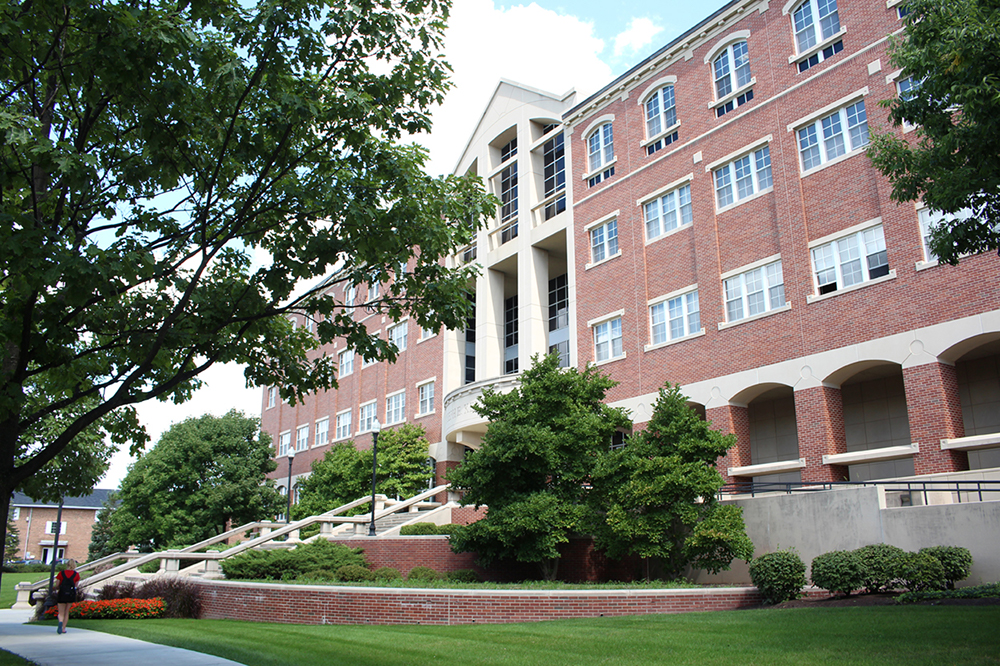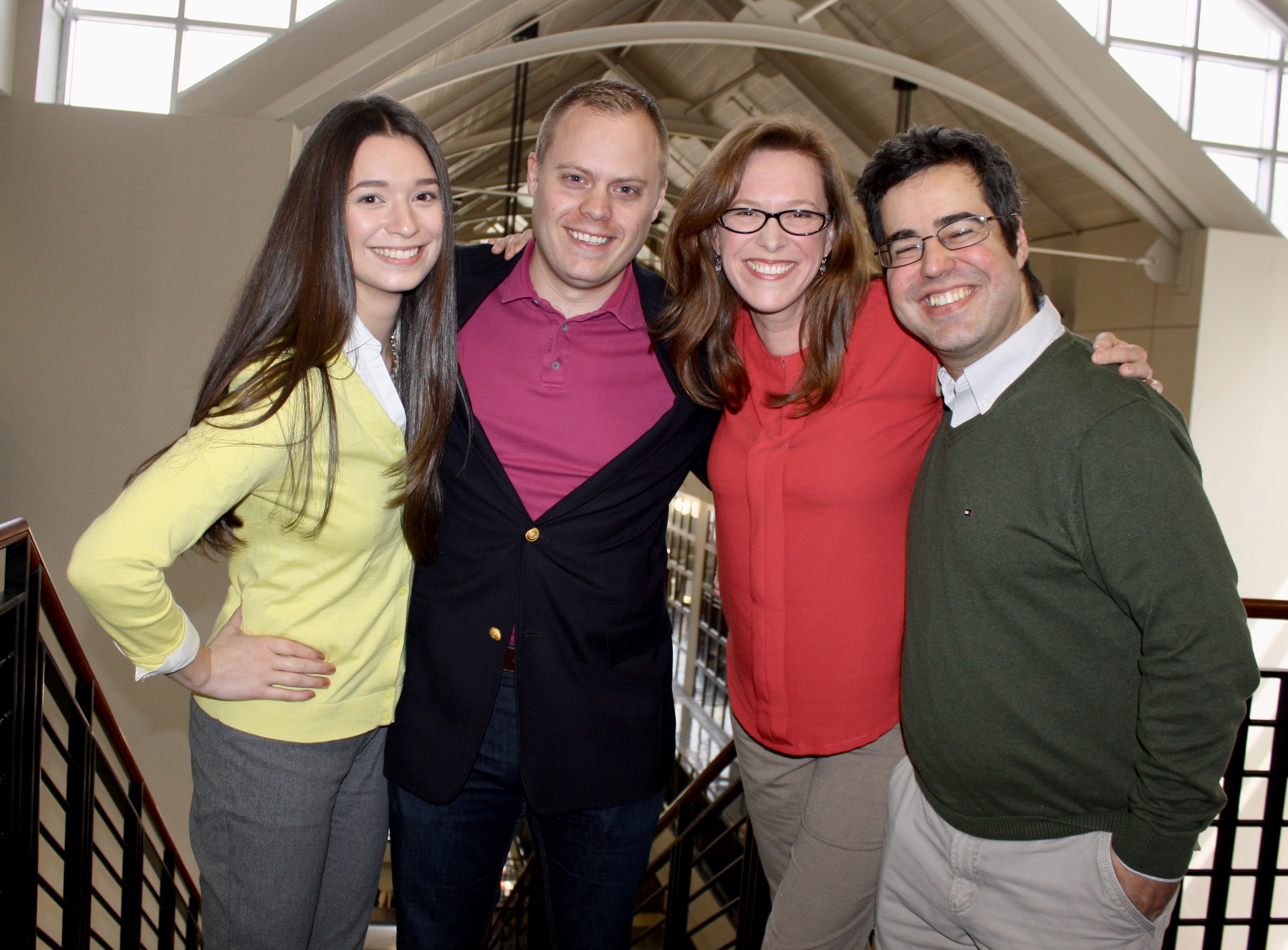
LHP Mentoring
What It Means To Have A Mentor
A look at how students are benefiting from the mentoring opportunities provided by the Leadership Honors Program at the University of Dayton School of Law.
What It Means To Have A Mentor
A look at how students are benefiting from the mentoring opportunities provided by the Leadership Honors Program at the University of Dayton School of Law.
Mentoring and the Leadership Honors Program
The Mentoring Program pairs LHP students with accomplished Dayton Law graduates. These carefully selecting pairings provide LHP students with the opportunity to develop close personal and professional relationships that can last well beyond the student’s law school career.
Mentoring starts in the second semester of the student’s 1-L year and pairs meet at least 2-3 times each semester. Meetings are structured around topics suggested by the Program. During the mentoring relationship, pairs will consider issues such as:
- the role of lawyers in society;
- the student’s experience in law school, including strategies for academic success; and personal and professional development;
- the importance of ethics and professionalism in law practice;
- career paths, relationship building, and strategies for career development;
- practical aspects of working in a law office; and,
- the transition from law school to employment in a law office.
Our Mentors
LHP mentors work as practicing attorneys, judges, in-house counsel and in other law-related positions and have experience in a wide range of practice areas. They are Dayton Law graduates who are enthusiastic about working closely with LHP students to develop their leadership potential. Mentors listen, learn, process, provide feedback, share experiences, offer support and guidance, and assist with relationship building. Mentors also help students develop strategies for success as the student progresses through law school coursework, externship or clinic, a law school clerkship, and, finally, transitions into legal employment.
If you are a graduate of UDSL and are interested in serving as a mentor, we would love to hear from you. Please contact LHP Director Ericka Curran for more information.
FAQs
Q: Will I have the same mentor or student during the student’s entire law school career?
A: Generally, yes. However, either the student or the mentor may request a new assignment during the first or second year of law school. Changes may be made for any reason, but we ask that you let us know the reason for your request. To request a change of assignment, contact LHP Director Ericka Curran.
Q: Are mentors and students required to discuss the suggested topics during their meetings?
A: The focus of your mentor-student relationship is up to you. While mentors and students are encouraged to discuss the suggested topics, they are free to discuss other topics of interest to both parties. It’s OK to have fun, too. For one of your sessions, you may just want to spend a few hours cheering on the Dayton Dragons!
Q: May mentors and students meet more frequently than the suggested schedule?
A: Yes. Mentors and students may meet as often as they mutually agree. Meetings also do not have to have a specific topic. Meetings can include networking events, bar association meetings, Chancery Club luncheons, and other events of interest to members of the bench and bar.
Q: What happens if we miss a meeting?
A: If you miss one of your monthly meetings, try to re-schedule it for another time. A good rule of thumb is to aim for 6 meetings per year. You may want to schedule some of those in the summer or during times when you know you will be available and not distracted by work or school.
Q: Do I need to report in using mentorcliQ after each meeting?
A: We would appreciate it since it helps us keep an eye on the program and measure its success. Thank you for helping us in this way.
Q: Does the LHP mentoring program continue throughout law school?
A: Yes. The LHP mentoring program is designed so that a student will have a mentor throughout his or her law school career. As a student nears the end of a law school career and networking opportunities become more critical, the mentoring relationship becomes very important.
Q: What happens if I don’t hear from my mentor or my student?
A: If you are having trouble communicating with your mentor/student, try contacting them again. If the lack of communication continues, please email LHP Director Ericka Curran for assistance.

Thanks again for the connection to my mentor. I believe this single connection may prove to be one of the most fruitful things I can do in order to secure a job in the field I want.

Professor Ericka Curran
Director, Leadership Honors Program
ecurran1@udayton.edu
